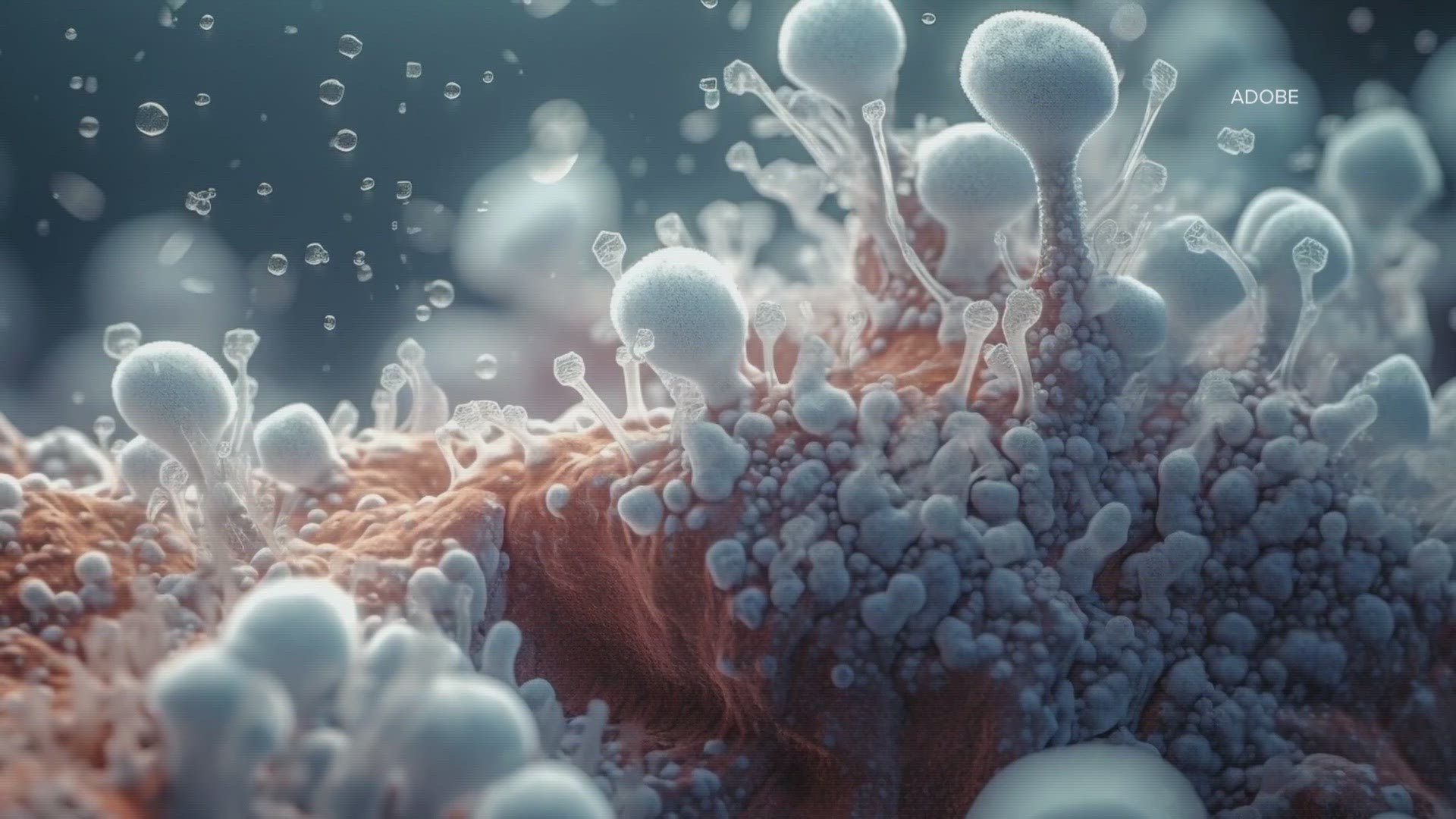SEATTLE — Hospitals in Washington are taking precautions after the first case of the highly drug-resistant fungus known as Candida auris, was confirmed in Washington state.
Candida auris, commonly known as C. auris, is a type of yeast that is generally not a problem for healthy people, but can be dangerous, even deadly, for people with underlying conditions.
The fungus has spread in alarming levels at hospital settings across the U.S.
This month, Washington saw its first case.
"I think it was only a matter of time before we'd see our first case," said Nigel Turner, division director of Communicable Disease Control for Tacoma-Pierce County Health.
The department released a notice in July, stating a Pierce County man was diagnosed with Candida auris colonization on July 13 after being discharged from St. Joseph Medical Center in Tacoma where had been staying for six weeks, and tested positive at Kindred Hospital Seattle–First Hill during an admission screening. The release said the patient had several comorbidities at the time and had not recently traveled out-of-state.
Patients who are "colonized" with the fungus aren't necessarily infected, but can carry and spread it, even though it doesn't make them sick.
"We're absolutely investigating. That's the work that's ahead of us, is to provide testing for the hospital and any sites where people might have been, to see what's the scale of this and the scope of it," Turner said.
Candida auris is a type of yeast that the Centers for Disease Control and Prevention calls, a "serious, global health threat" because of its resistance to multiple anti-microbial drugs. It also requires specialized lab tools to be identified.
First detected in 2009 in a patient in Japan, it has spread to levels that have alarmed health care facilities, notably due to its resistance to commonly used anti-fungal drugs.
"Over time, as Candida auris has been exposed to different antibiotic or different anti fungal agents, in the course of treating someone in their critical illness, it can evolve resistance," said Dr. Ellora Karmarkar, an infectious diseases fellow at UW Medicine.
Karmarkar treated C. auris patients during a breakout in California years ago, and said it can be deadly if a patient infected with the fungus presents certain symptoms.
"The challenge with those symptoms is they're very non-specific. So if someone has sepsis or if someone has pneumonia, it doesn't necessarily mean it's from Candia auris. People who have a bacteria infection could have sepsis or pneumonia," Karmarkar said.
It's unclear where the WA patient first acquired C. auris.
"We believe that there was some patient where this patient got it from. And we don't know where that was," said Marisa D'Angeli, a medical epidemiologist for the Washington Department of Health's Healthcare-associated Infections Program.
D'Angeli said the yeast does not present a risk to the general public but is a risk to people who are already sick. It is primarily an issue in hospitals and long-term healthcare settings, where patients get catheters or other tubing entering their bodies.
"This is a really high-priority organism that we've been expecting for a long time, and it's finally here," D'Angeli said.
D'Angeli said several precautions and screening measures have been activated.
She pointed to the Partners for Patient Safety Program that regularly screens for Candida auris. The program involves partnerships with the CDC, the state DOH, local health departments of health, and facilities like Kindred Hospital, which, according to D'Angeli, was already screening for C. auris because of its involvement in the program.
"This was a standard screening process at the facility in King County, so this is the system working to find this, that allow us to trace it back and see what we can find, and again put in place measures to prevent further transmission," Turner at Pierce County Health said.
D'Angeli added that the screening measure detected the C. auris case early.
"Because if it hadn't been identified there, there was potential for spread on throughout the state," D'Angeli said.
D'Angeli said as of this week, recent screenings have shown no new cases of the fungus but further screenings are being done.
Virginia Mason Franciscan Health, which oversees St. Joseph Medical Center in Tacoma, said in a statement:
"On July 14, we were notified by the Tacoma-Pierce County Health Department that a patient who was discharged from St. Joseph Medical Center subsequently tested positive for Candida auris (C. auris). We immediately began working with public health officials to complete testing for patients who may have been exposed. To date, all completed test results have been negative and we are waiting on a few test results to be finalized. The care and safety of our patients and staff remains the top priority for us. We continue to partner with the Tacoma-Pierce County Health Department, Public Health - Seattle & King County, the Washington State Department of Health, and Centers for Disease Control and Prevention to address this situation." -- Kelly Campbell, Division Vice President, Virginia Mason Franciscan Health
The health group added that St. Joseph Medical Center is taking steps to avoid potential exposures, which include disinfecting identified high-risk rooms and high-touch areas.
Health care officials also urge anyone who visits patients at health care settings be aware of infection control practices to help prevent potential spread.

